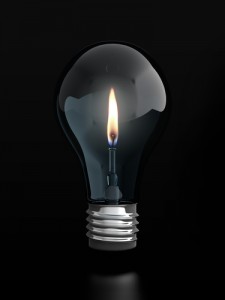MANILA — The Department of Energy (DOE) on Thursday said that invoking Section 71 of the Electric Power Industry Reform Act of 2001 (EPIRA-2001) will curb possible supply crisis in the Luzon grid in summer of 2015.
”Invoking the power of Section 71 of the EPIRA would accelerate the efforts of the government to provide additional power supply to the grid which can evade possible power shortages or blackouts next year,” the DOE said in a news release Thursday.
The Section 71 of EPIRA termed as the Electric Power Crisis Provision states that upon the decision of the President of the Philippines of a near shortage on the supply of electricity, the House of Representatives and the Senate, may authorize the establishment of additional generating capacity.
The law states that the two bodies will also set up the terms and conditions of the added generating capacity.
Energy Secretary Carlos Jericho Petilla pointed out that preparations are needed to halt the impending brownouts with the projected demand of 9,011 megawatts (MWs) for 2015, higher than this year’s actual demand of 8,717 MW, due to economic expansion and investments in the country.
“To solve this, the Secretary suggested an additional 400-500 MW capacity to act as a buffer supply during the peak months,” the statement said.
Moreover, the DOE has maintained that warnings for the additional supply were given out as early as June 2013 due to some setbacks on committed projects.
It noted that committed power projects in the early part of 2015 have been delayed due to technical and regulatory issues, which can lead to the lack of supply from March-May next year.
This possible scenario has prompted Petilla to recommend to the President to invoke Section 71 of EPIRA granting the Chief Executive emergency powers to resolve the power situation in 2015. He earlier said that the suggestion of emergency powers is a proactive move of the DOE as a recommending body and lead agency of the government.
However, the DOE added that other options are still being considered by the President to resolve the looming power supply deficit.
Earlier, the DOE Secretary said that the first recommendation he will give, if ever Congress approves the emergency powers for the President, is to rent private power plants for a two-year short-term contract.
Rather than build power plants, Petilla said private plants can be rented and the government will pay at a rate of one peso per kilowatthour (kWh).
